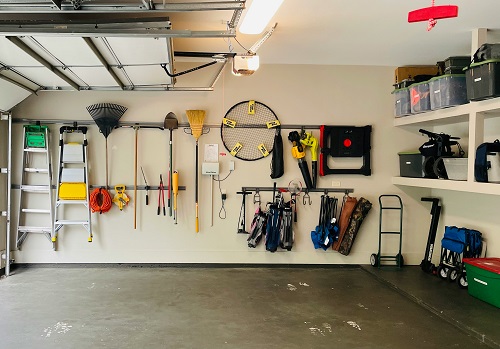5 Practical Budgeting Tips
By Pamela Wong
Pamela is a Trained Professional Organizer based in Oakville, Ontario and is the owner of Zen N Organized. She helps homeowners and small business owners transform their homes and home offices into organized spaces. She has a practical, non-judgemental approach to organizing. Her objective is to create functional and harmonious spaces for her clients.

Are you feeling that your money is not going as far as it used to? If so, you are not alone. According to Numbeo, the cost of living for a family of four, living in the Toronto area, is estimated to be over $4,000* a month without rent or mortgage. Food prices continue to rise and interest rates are at or near its highest since 2001.
Budgeting is more important than ever before, so if you are planning to review your budget tosee where you can get it under control, then read on to find some helpful tips.
Similar Process
You may be surprised to know that you can use a similar process for both budgeting and decluttering. Let me show you.
1. Assess
Whether you are checking your spending habits or the amount of clutter in your home, the first step is to assess your current situation. You need to know where you stand now before you can find areas that you can improve. Where are you spending your money? What is working? What is not working? What seems to be the issue?
2. Goals
The next step is to set a goal. What are you planning to achieve? What needs to change for your goals to come to fruition? Are you trying to save more money for a specific purpose, e.g. child’s education, a renovation, an extended vacation, add to your future retirement or build an emergency fund?
3. Plan and Execution
Set concise, manageable, and achievable steps to ensure your objectives are attainable. Incorporate the practical tips in the next section to help you achieve your goals. During the process, reassess often to ensure you are on track. Question yourself throughout the process, correct and make adjustments as needed. Give yourself encouragement during the execution phase for reassurance.
4. Tweak And Maintenance
Decide on any tweaks that may be needed to maintain your goals. Set up a schedule for regular review. Reward yourself for your accomplishment.
Practical Tips
You can find many tips and tricks from an internet search about budgeting. Some are simple, others complicated. Some may work for you, while others may not. Here are 5 of them that my clients find helpful:
1. Needs
Cover the non-negotiable expenses, i.e. your needs: food (groceries, not eating out), shelter (mortgage/rent and other expenses that are associated with it e.g. home insurance), transportation and auto (car loans and insurance) and medical expenses.
2. Keep Track Including Small Fluctuations
The total outgoing amount must be less than the total incoming amount, i.e. achieving net zero or a positive is a MUST. Keep track of every dollar spent, this will ensure nothing falls through the cracks. Plan ahead and provide a buffer to allow monthly fluctuations. Here are some examples:
-
- Small differences such as grocery and gas bills that will vary from week to week.
- Events that may happen once or a few times a year, e.g. back-to-school supplies, regular car maintenance.
- Unexpected events such as illness, job change that may affect your income and/or expenses.
- Special occasions such as birthdays, holidays, weddings and funerals.
3. Pay Off Your Debt
Prioritize your budget to pay off your debt, particularly if the interest rate on the debt is high (e.g. credit card interest rates are usually high).
4. Set Goals and Track Your Progress
Remember why you set a budget in the first place and what your goals are. Make sure your goals are realistic and within an achievable timeline. Remind yourself of the goals often and set a regular schedule to review them to ensure you are on track.
If you notice you are off track that month, is the current budget realistic for your current lifestyle, or does it need to be tweaked a little? Re-evaluate and adjust accordingly.
5. Reward Yourself
It may take a few months before you get a handle of things and it’s ok if at first you don’t succeed. Try, try again. Pat yourself on the shoulder by rewarding yourself for staying on track.
Take control of your finances and enjoy the results! Less money worries equal more happiness, and who wouldn’t want more joy in their lives?




These are great tips! If you don’t have a budget for special occasions, it’s easy to fall into the trap of using credit cards, which will nearly always lead to carrying a balance and incurring income charges. If you don’t have the money in November, it’s unlikely to magically appear in January!